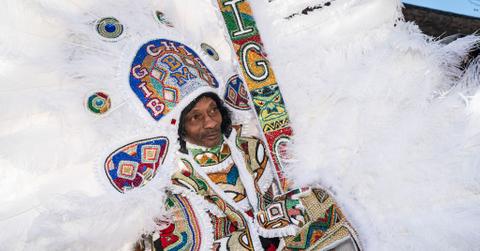
Hidden Gems: Exploring the Richness of African Diaspora in Unexpected Places
Uncover the hidden influence of the African diaspora in cities like Salvador, Paris, and New Orleans. Explore vibrant cultural legacies that stretch beyond Africa.
By Alan BlakeFeb. 19 2024, Published 10:56 a.m. ET
With its kaleidoscope of cultures and rich heritage, the African continent stands as a beacon of diversity and a reservoir of traditions resonating through the ages. However, the beauty of the African heritage isn’t confined to its continent. Thanks to the movements of African communities, this vibrant culture now transcends Africa’s geographical boundaries, leaving imprints in unexpected places.
But what is meant when we say "African Diaspora?" According to YukonYouth.com, "The African diaspora refers to the many communities of people of African descent dispersed throughout the world as a result of historic movements. The majority of African dispersal resulted from the Arab and Atlantic slave trades – the largest forced migrations in history. An estimated 11 million Africans were dispersed from the Atlantic slave trade from Western Africa and Central Africa and an estimated 10 to 80 million from the Arabic slave trade. Despite popular association with the United States, only 5% of African slaves went to America while the remaining 95% went to Central America, South America and the Caribbean." The shared similarities of Afro-Nations around the world mean there is a shared history, culture, and connection that is worth exploring. Read on to explore hidden gems where the profound richness of the African diaspora now exists.
International Travel Destinations that Highlight the Influence of the African Diaspora
From the lively streets of Brazil to the rhythmic charm of Cuba, here are unexpected international travel destinations where the rich African heritage echoes far beyond its original shoes.
Salvador, Brazil
Nestled in Brazil, the city of Salvador, affectionately dubbed "Black Rome," "Black Mecca," and the "Blackest City out of Africa," stands as a vibrant testament to Afro-Brazilian culture. Rooted in its history as a former French colony, Salvador boasts an 80% African resident population, fostering a dynamic and rich cultural tapestry.
From tantalizing Afro-Brazilian street foods like acarajé to the rhythmic beats of Capoeira, this city is a celebration of African heritage. Amidst historical sites like the UNESCO-listed Pelourinho and the Afro Museum, Salvador narrates stories of resilience, reflecting the profound impact of the transatlantic slave trade.
Paris, France
Often hailed as the City of Light, Paris holds a unique historical significance as a refuge for Africans and African Americans. In a world where Black individuals faced rejection, Paris became a haven where they found success and respect. Noteworthy figures such as Josephine Baker and Richard Wright exiled African-American artists, achieved remarkable careers, and disseminated African heritage to such an extent that they influenced European women to experiment with darkening their skin.
And the echoes of their influence are still pretty loud today. Go to Little Africa (La Goutte d'Or) on the 18th arrondissement, and you’ll find spaces that host African art and music events and colorful markets, such as Marché Dejean, where you can find various products from the African continent.
Belleville and Ménilmontant, neighborhoods northeast of Paris, are characterized by Afro-Caribbean art, African shops, restaurants, and vibrant street art that reflects the diversity of the African diaspora. On Le Comptoir Général, an eclectic street in the 10th arrondissement, Afro-Caribbean art exhibitions, live performances, and cultural events are often the order of the day.
Simply put, Paris features vibrant pockets where Afro-culture thrives, creating an enriching experience for locals and visitors.
New Orleans, USA
New Orleans proudly wears the mantle of being deemed the most African-American city in the United States and with good reason. Tracing back to its origins as a French Colony for enslaved Black people, the enduring influence of Africans resounds vibrantly today.
Their mark is particularly evident in the realm of music, where genres like jazz, blues, R&B, and hip hop were introduced, reshaping not only the musical culture of New Orleans but leaving an everlasting impact on Louisiana and the entire United States.
Beyond music, the influence extends to Louisiana voodoo, culinary traditions, and religious practices. Amidst the myriad places that echo African culture in New Orleans, none quite encapsulates it like Congo Square. This historic space served as a nexus where Africans gathered to dance, trade, and socialize on Sundays.
Even in contemporary times, it remains a cherished meeting ground for African New Orleanians, hosting vibrant Sunday drum circles, weddings, gospel performances, and political demonstrations, a testament to the enduring legacy of African heritage in the city's heart.
Exploring the African Culture Beyond Borders
The stories embedded in the fabric of cities like Salvador and New Orleans are testaments to the resilience, creativity, and cultural richness of the African heritage. Each destination is an invitation to explore, appreciate, and celebrate the diverse and profound impact of the African diaspora worldwide.

